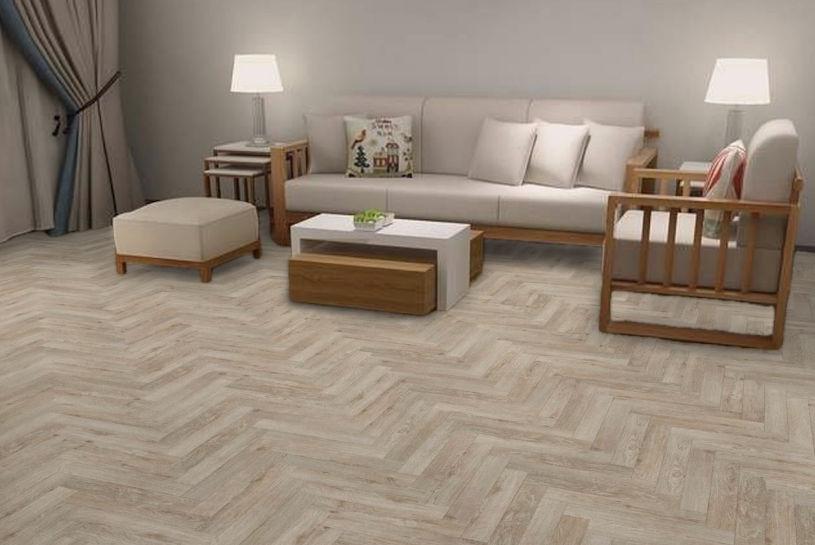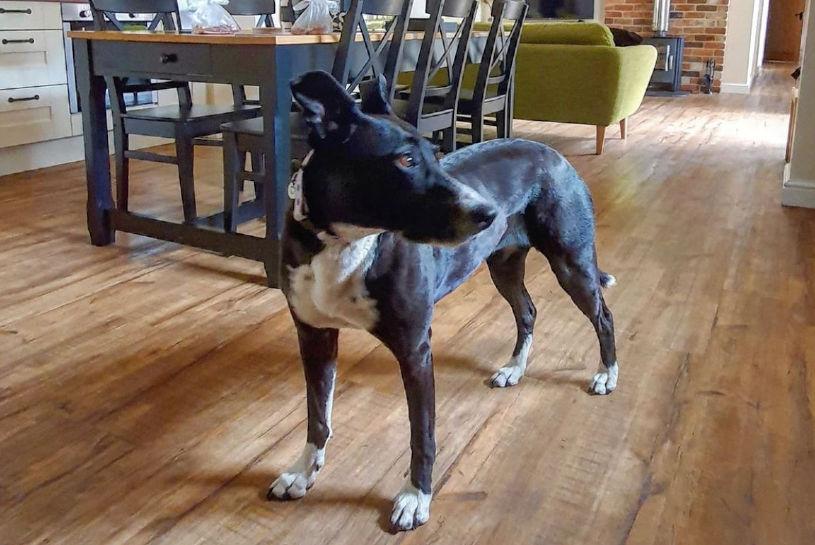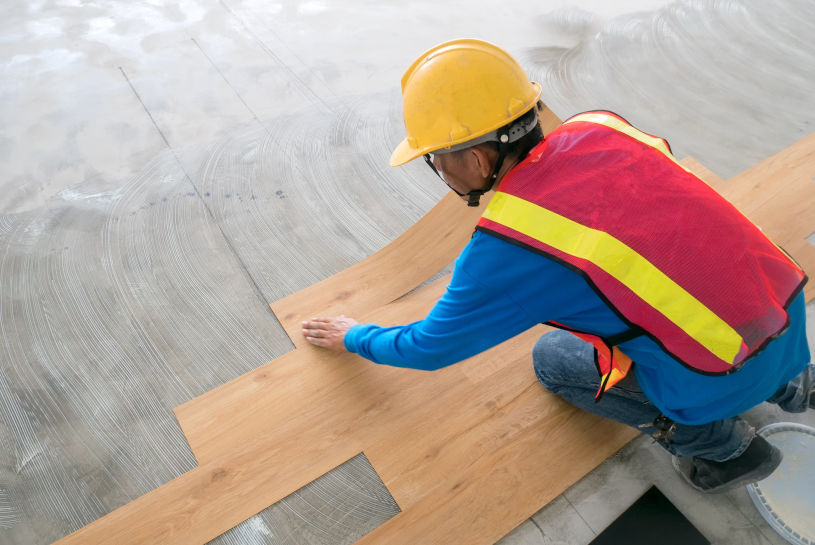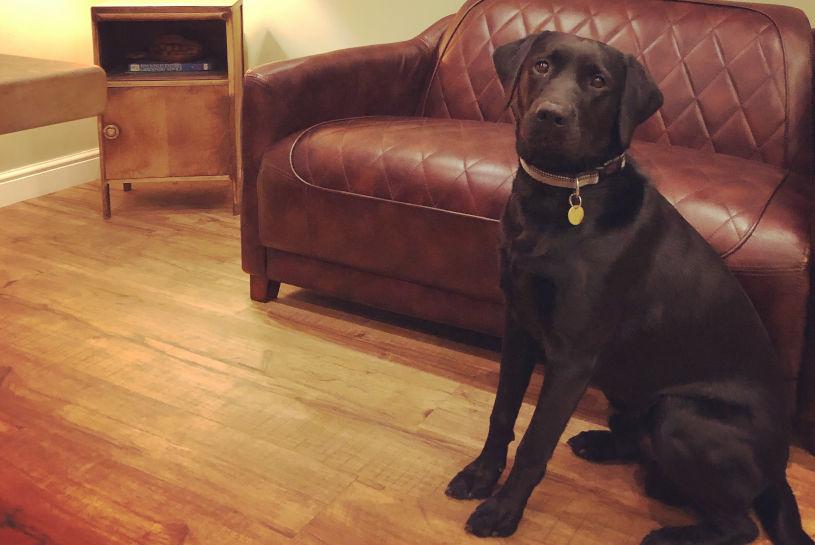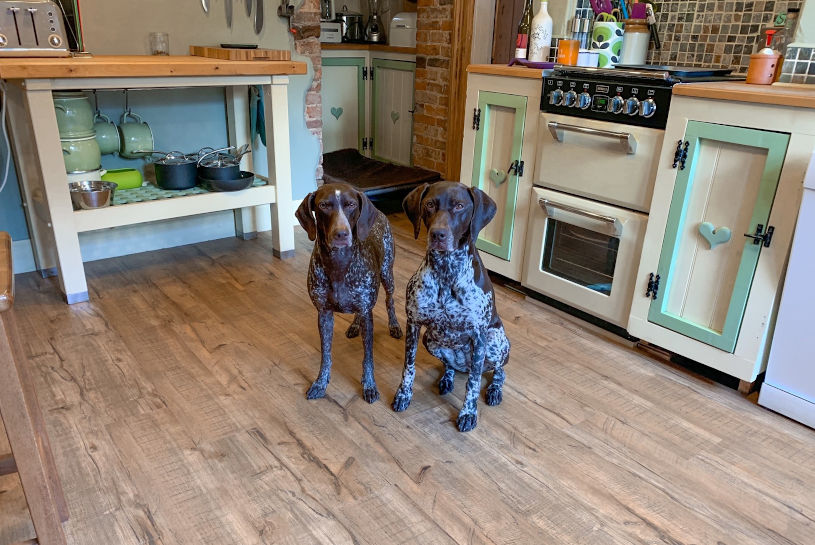Herringbone LVP flooring is a luxury vinyl plank option that features a unique, interlocking pattern of rectangular tiles arranged in a zig-zag or “herringbone” formation. This pattern is often associated with high-end, traditional design aesthetics and is popular in commercial and residential spaces. The LVT material is durable, water-resistant, and easy to maintain, making it a great choice for high-traffic areas such as kitchens, bathrooms, and entryways. Additionally, LVT flooring is often more budget-friendly than traditional hardwood or tile options, making it a cost-effective choice for those looking to achieve a high-end look without breaking the bank.
Floors for Paws Glue down Herringbone luxury vinyl plank (LVP) flooring is a type of flooring that is installed by applying adhesive to the subfloor and then pressing the planks into the adhesive. This method of installation is typically used in commercial and high-traffic residential spaces, as it provides a more secure and stable hold on the floor.
One of the benefits of glue-down LVP flooring is that it is less likely to shift or move over time, as the adhesive creates a strong bond between the planks and the subfloor. This can be especially important in areas that are prone to moisture or temperature changes, as the adhesive can help to prevent warping or buckling of the planks.
Another benefit of glue-down LVP flooring is that it needs a latex smoothing compound prior to installation that will smooth an uneven subfloor. The adhesive acts as a moisture barrier between the planks and the sub-floor making it completely waterproof. This can be especially useful when you have dogs who may splash water from there bowls, bring in water from outside or leave piddle on the floor!
However, installation of glue-down LVP is a bit more complex than other installation options such as click-and-lock, and it requires more time and skill. However once the planks are glued down, an individual plank can be heated and removed if damaged unlike click flooring in which the whole floor needs to be removed.
Overall, glue-down LVP flooring is a durable and stable option that is well-suited for commercial and high-traffic residential spaces, but the installation process is more complex and the planks cannot be easily removed or replaced.
Order your 3 free samples today https://www.floorsforpaws.com/pawsafe-domestic-range/
